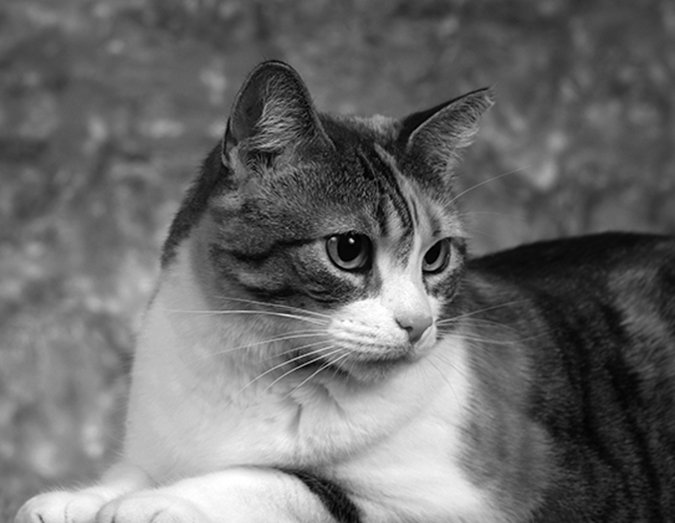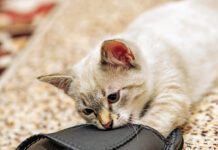Q: I recently adopted a male kitten from the local shelter and I’m in the process of “kitty proofing” my house. I’ve been doing some reading about things in my house that can be dangerous to my new feline friend. Could you give me some advice about how to make my house safe for this cute little guy?
A: First, thank you for your wonderful decision to take in a kitty in need of a home. People like you make the lives of so many cats better in so many ways, and I think it is great that you have done this.
It is true that there are some common dangers in the household that can be mitigated by awareness, so let me mention a few of these. Cats, as you know, love to play with string, ribbon, dental floss and other linear objects. A common emergency in feline medicine is what is called a linear foreign body. This is a situation in which a cat ingests such an item, often resulting in the obstruction and/or strangulation of the intestines. This condition can be potentially life threatening and requires immediate intervention, ranging from endoscopy (the passage of a flexible camera down into the gastrointestinal tract) to abdominal surgery to remove the offending foreign body and restore normal intestinal function.


It is important to make sure that cats do not have access to linear objects. If any such items go missing and a kitty is showing signs of GI distress (vomiting, anorexia, diarrhea), make sure to seek veterinary assistance immediately and let your cat’s veterinarian know about the missing item. A related problem with another linear object is the chewing of electrical cords, so please make sure that your cat does not have access to these sometimes tempting, but potentially fatal household items.
A number of plant species, including lilies, poinsettias, azaleas, dieffenbachia, are toxic to cats. Depending upon the specific species, ingestion of the flowers, stems or the whole plant may cause a variety of problems, ranging from relatively minor GI upset to potentially life-threatening kidney or neurologic disease, so make sure that your kitty does not have access to any of these. The American Society for the Prevention of Cruelty to Animals maintains a very good list of plants that are toxic to cats at: www.aspca.org/pet-care/animal-poison-control/cats-plant-list.
Acetaminophen (Tylenol) and other non-steroidal anti-inflammatory drugs can also be very toxic to cats. Acetaminophen ingestion is a medical emergency, and informing the veterinarian about the possibility of exposure to this common drug can be life saving. Of course, it is important that you keep all medications in a secure location and that you do not lose track of any doses that may accidentally fall to the floor where your kitty may ingest them.
A number of common foods can also cause problem in cats, ranging from mild GI upset to potentially life-threatening conditions. Ingestion of garlic, chives, grapes, alcohol, tuna (in large quantities), chocolate, liver (in large quantities), chicken/turkey bones, and a number of other foods can result in illness, so it is best to feed your kitty only food that is specifically formulated for cats. Please speak with his veterinarian about other potential foods to avoid and about any possibility of ingestion of these foods in the event of a medical problem.
You should also make sure that your kitty doesn’t have access to rodent poison, antifreeze and flea and tick products intended for dogs. Never use dog products on cats! Of course, it is also important to make sure that there are no heavy items that your kitty can inadvertently knock down upon himself during his everyday wonderings through the house.
Although this is not a comprehensive list, I hope that it is helpful. Please check with your cat’s veterinarian about other potential concerns, and best of luck with your new ball of fur!
—Sincerely, Elizabeth



